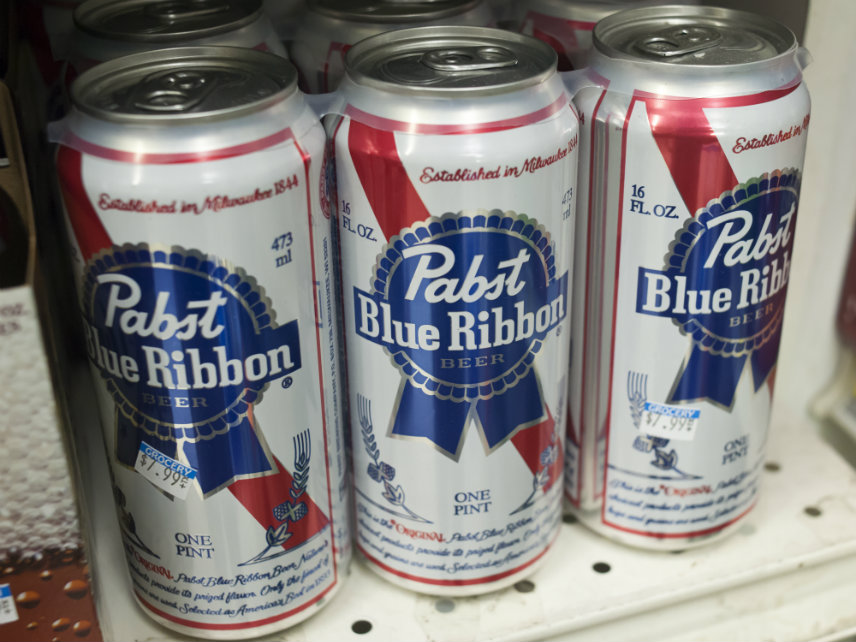The Price of Protectionism: More Expensive Beer
The White House will force American can makers to "buy American," driving up prices and costing jobs-without doing anything to help American workers.

Protectionist trade policies being considered in Washington could increase the cost of aluminum. American breweries say that means you'll end up paying more for a can of beer.
In a letter to the president sent last week, some of the country's most prominent breweries, soda companies, and aluminum can manufacturers said they are worried about new tariffs on aluminum imports reportedly being considered by the White House. "Import restrictions or tariffs" on the types of aluminum alloys used to make cans "will add hundreds of millions in costs for companies in the food and beverage industry and will detrimentally affect over 82,000 American manufacturing jobs in industries that rely on these products," the CEOs wrote.
Beyond the immediate consequences of imposing tariffs on imported aluminum, they warn, any restrictions or tariffs could spur other countries to take retaliatory actions against American products. That would limit opportunities for American businesses to sell goods in other countries. Shortsighted trade policies could end up hurting one industry in an attempt to help another.
The letter is a preemptive strike, since the administration has yet to announce any formal plans to restrict aluminum imports or to slap tariffs on them.
A memorandum signed in April by President Donald Trump instructed the Department of Commerce to investigate "the effects on national security of aluminum imports." The White House said at the time that it was concerned about whether American aluminum manufacturers could supply enough of the stuff in the event of a major war. (Aluminum is used to make shell casings and many other tools of modern war—hence the language about "national security.") But the move corresponds with a White House push to protect American jobs from competition overseas. China is one of the largest exporters of aluminum to the United States, so a move to make aluminum imports more expensive would also strike a blow against a country that Trump often vilifies for its trade policies.
But that sort of protectionism makes everyone less well off in the long run, for little benefit to American workers.
American companies produce more than 96 billion aluminum cans every year in 52 different plants scattered across 23 states, according to the Can Manufacturers Institute (CMI). The type of aluminum they use—called "cansheet" in the industry—is manufactured by combining recycled aluminum and other scrap medals with newly smelted aluminum made from bauxite. Although bauxite is available in the United States, there is nowhere near enough of it to satisfy domestic demand. Even if every available smelter were to run at full capacity, the U.S. would still have to import more than 80 percent of its aluminum supply, the CMI says.
It's cheaper to mine bauxite elsewhere in the world, process it into aluminum, and bring it to the United States to make cans. So that's exactly what happens. Making it more expensive to import aluminum will disrupt that global supply, forcing adjustments that add to the cost of production but don't really do much to protect American jobs. That bauxite-mining and aluminum-smelting work will mostly continue to be done elsewhere, due to the simple fact that American demand for aluminum outpaces domestic supply.
And if it is more expensive to make aluminum cans, then it's more expensive to sell anything that comes in an aluminum can.
"If there are duties on aluminum coming to this country, it will obviously get passed on to us and the customer," Tim Weiner, a senior commodity risk manager at Molson Coors Brewing Company, said at an industry conference in Chicago last week, according to Bloomberg. "Our prices will go up."
The White House was originally expected to release its aluminum trade policy in mid-June, but the report has been delayed. Now, CNN reports, it is expected to be released before the end of the summer.


Show Comments (22)